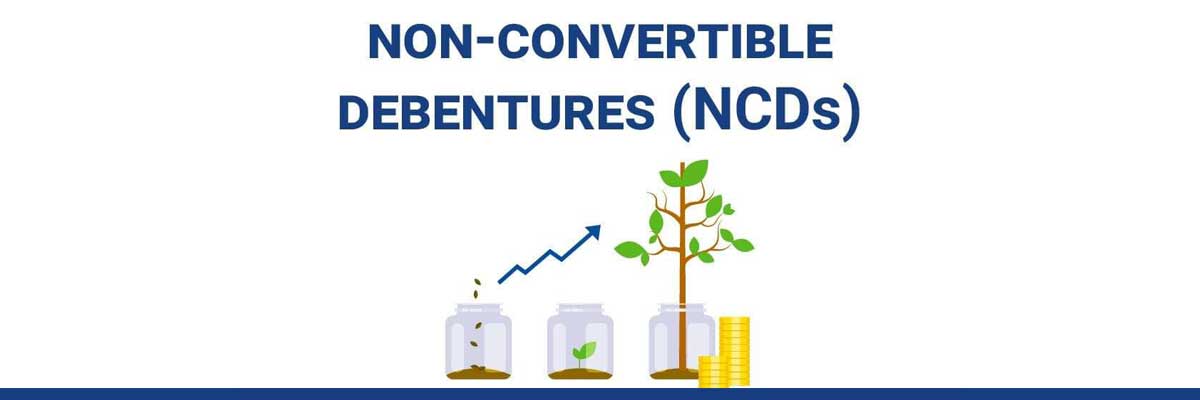Are you one of those people who wants to earn regular income on their fixed-income investment? Then this blog is for you. And, when it comes to fixed income plans so there are so many options to invest in. PPF, NSC, bank fixed deposits, and the best one is NCD.
What is NCD investment?
NCD stands for non-convertible debentures. NCD Is the debt instrument and it is registered under the companies act 1956/2013 issue to raise money. When it comes to NCD Investment’s time period, so these non-convertible debentures are fixed and ranges between 1 to 10 years of time frame. And, it cannot be converted into equity shares at future dates. In equity share, you become a shareholder of the company. However, in NCD you play the role of lender. With NCD investment you can get fixed interest on a regular basis during the term of your investments. You can also choose to get the benefit of compounding at a fixed rate and get lumpsum on a maturity.
Types of NCDs:-
Secured NCDs are backed by specific assets, while unsecured NCDs are not. Secured NCDs are backed by specific assets, and if the company defaults, the assets of the company may be liquidated to return the investor's investment. In the event that the company runs into financial difficulties, interest payments on unsecured NCDs would be tough to come by.
Features of NCDs:-
Liquidity:-
This is a crucial feature since highly liquid assets are in high demand. In the event of an emergency, the asset should be easily accessible. NCDs perform well in this category because they are listed on exchanges and have a lot of liquidity. NCDs can be bought or sold in the secondary market at any time.
Ratings:-
Any business seeking capital through an NCD must seek ratings from credit rating agencies such as CRISIL, CARE, ICRA, and others. A higher credit rating essentially implies that a company is more likely to meet its obligations, while a lower rating suggests that the company is more likely to default on its obligations. If the company issuing the NCD defaults on payment, the rating agencies would downgrade the company's rating.
Risk:-
NCDs are at risk of default or credit loss. It's possible that the company won't be able to pay its creditors. In the case of an unsecured NCD, the lender has no means of getting his money back. Before investing in an NCD, one can look into the company's repayment background. Credit ratings can also assist in determining the degree of risk associated with investing in a specific business.
Taxation:-
Short-term capital gains will occur if NCDs are sold within a year, depending on your tax bracket. Long-term capital gains will be levied at a rate of 20% with indexation if sold after a year.
Tenure:-
NCD is extremely adaptable, with a minimum tenure of 90 days and a median tenure of 10 years or more. Investors can choose between a short-term or long-term NCD depending on their needs.
How to buy NCD?
To buy NCD you must have a Demat account. If you do not have a Demat account, then you should get one now by clicking here. To invest in active NCDs visit here.







_(1)_6050e27e162d6.jpg)
_(1)_(1)_(1)_6040afe389cbc.jpg)